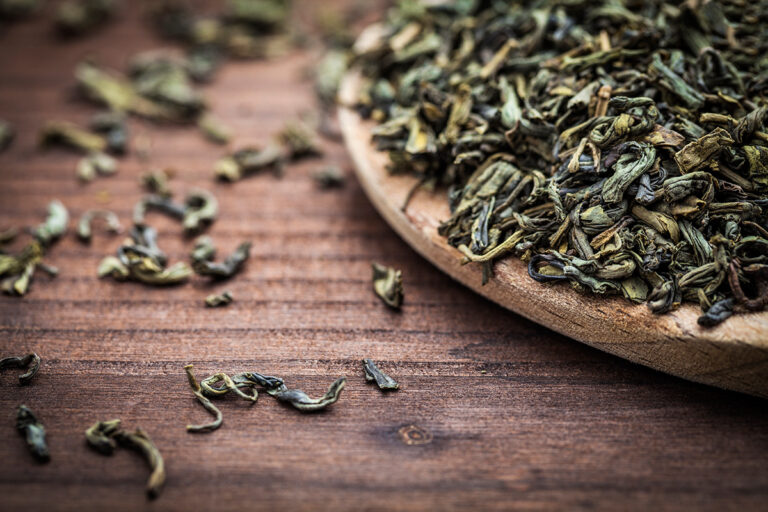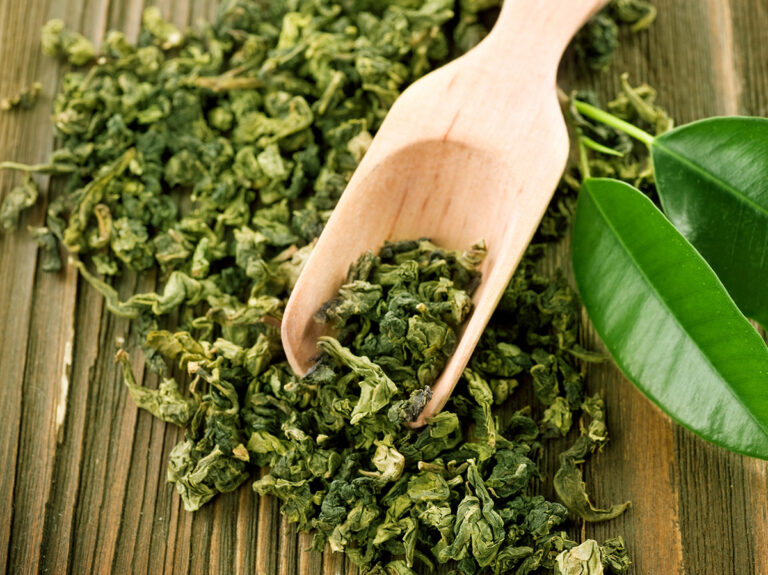Is Green Tea Acidic or Alkaline?
Green tea, a globally popular beverage, is celebrated for its many health advantages.
However, many people often wonder whether green tea is acidic or alkaline.
In this article, we will explore the pH levels of different types of tea, including green tea, and discuss the implications of acidity on health.

Is Green Tea Acidic?
Despite widespread belief, green tea is not acidic. In reality, its pH level ranges from 7 to 10, rendering it neutral or mildly alkaline. This sets green tea apart from other types of tea and beverages, which can have varying acidity levels.
What Is Acidity and How Is It Measured?
The term acidity relates to the concentration of hydrogen ions in a substance. Acidity is gauged on a pH scale from 0 (highest acidity) to 14 (highest alkalinity), with 7 representing neutrality. A substance with a pH under 7 is considered acidic, while a pH over 7 indicates an alkaline nature.
Average pH Level in Different Types of Teas
Before diving into the pH levels of various teas, let’s take a moment to understand that the acidity of tea can be influenced by factors such as the type of tea leaves, brewing time, and water temperature. Bearing that in mind, the following table displays the average pH levels of various tea types, arranged from the least acidic to the most acidic.
| Type of Tea | Average pH level |
| Green tea | 7.0-10.0 |
| Fennel tea | 6.8 |
| Rooibos tea | 6.5 |
| Ginger tea | 6.5 |
| Chamomile tea | 6.0 |
| Peppermint tea | 6.0 |
| White tea | 5.2 |
| Oolong tea | 5.0 |
| Black tea | 4.9 |
| Red raspberry tea | 4.0 |
| Rosehip tea | 3.5 |
| Hibiscus tea | 3.4 |
| Lemon tea | 3.0 |
Is Acidic Tea Bad for You?
While acidic tea might not be harmful to most individuals, it can potentially cause trouble for those with acid reflux or other stomach issues. Consuming acidic beverages can exacerbate these conditions and lead to discomfort. Should this happen, consider teas with lower acidity levels, such as green, fennel, or rooibos.
Best Green Tea Brands for Your Next Batch
We have tested dozens of different options and chosen some good brands of green tea for you to try for your next batch.
Final Thoughts
Green tea, being less acidic than most teas, is a superior choice for individuals concerned with drinking acidic beverages. Its neutral to slightly alkaline pH contributes to its reputation as a healthy and beneficial drink.
FAQ
Is Green Tea More Acidic Than Coffee?
Green tea is less acidic than coffee. While green tea usually exhibits a pH level between 7-10, coffee generally has a pH near 5, indicating higher acidity. This means that green tea is generally a better option for those sensitive to acidity.
Is Green Tea OK for Acid Reflux?
Green tea is typically deemed safe for individuals with acid reflux, given its neutral to mildly alkaline pH level.
However, individual reactions can vary, and some people might still experience discomfort. If you experience acid reflux, it’s essential to watch your symptoms and consult a healthcare specialist before making considerable adjustments to your diet.
You can also try other low-acid teas like fennel or rooibos if green tea still causes discomfort.
Is Black Tea Acidic?
Yes, black tea is acidic, with an average pH level of around 4.9. This means it’s more acidic than green tea, which possesses a pH level of 7-10.
Opting for green tea or other less acidic choices, such as rooibos or ginger tea, may be preferable for those sensitive to acidity.
Are Herbal Teas Acidic?
The acidity levels of herbal teas may vary extensively, depending on the ingredients used. Some herbal teas, like rooibos tea (pH 6.5) or ginger tea (pH 6.5), are very close to green tea in terms of acidity (although still more acidic). In contrast, other herbal teas, like hibiscus (pH 3.4) and lemon (pH 3.0), are way more acidic than green tea.
If you have concerns about acidity, it’s essential to look into the pH level of the specific herbal tea you’re thinking of consuming.





